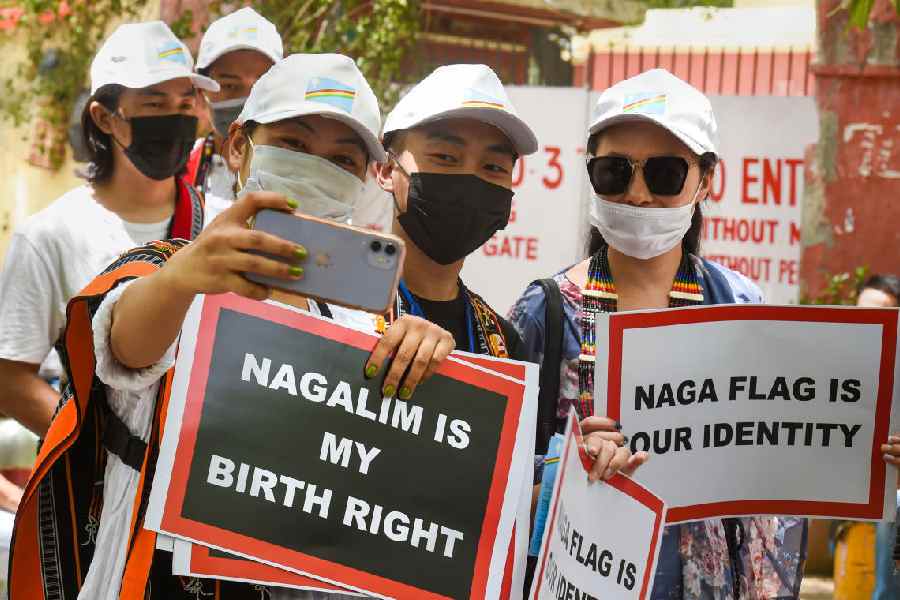The National Socialist Council of Nagalim (Isak-Muivah), the influential Naga insurgent group engaged in peace talks with the Centre since 1997, on Thursday reiterated that its demands for a separate flag, Constitution and the integration of all contiguous Naga areas were “non-negotiable”.
The stand was reaffirmed by Th. Muivah, general secretary and chief political negotiator of the NSCN(IM), during his speech marking the outfit’s 79th Naga Independence Day, observed annually on August 14 since 1947.
Naga separatist groups observe "Naga Independence Day" on August 14 every year. The NSCN was formed in 1980 after breaking away from the Naga National Council (NNC), which had declared Nagaland as an independent State on August 14, 1947, from British colonial rule. The NSCN split into NSCN (I-M) and NSCN (K) in 1988.
Muivah linked the occasion to the 23rd anniversary of the Amsterdam Joint Communiqué (July 11, 2002) and the 10th anniversary of the framework agreement (August 3, 2015). “These agreements speak loud and clear that Nagas are not lost people. We have our history and sovereign rights,” he said.
He asserted that Nagalim’s unique history, territory, sovereignty, national flag, Constitution (Yehzabo) and the integration of all Naga-inhabited areas were non-negotiable. “If India and Burma (Myanmar) respect the history of the Nagas, we will respect theirs ten times more,” he added.
Peace talks remain at an advanced stage but have stalled over these three demands, which the government is reportedly unwilling to concede. Tensions rose after the Centre abrogated Article 370 in 2019, which had granted Jammu & Kashmir its own constitution, flag and autonomy over most subjects. The proposed integration of Naga-inhabited areas in neighbouring states has also faced opposition.
Recalling the origins of the current peace process, Muivah said it began when the Indo-Naga conflict was recognised as a political issue by then Prime Minister P.V. Narasimha Rao. Meeting the NSCN leadership in Paris on June 12, 1995, Rao said: “I believe in a political solution. We must solve through political talks.”
This led to a ceasefire on July 25, 1997, paving the way for formal negotiations from August 1, 1997. Talks were agreed to be unconditional, held at the highest level and conducted outside India in a third country.
Since then, Muivah said, more than 600 rounds of talks have been held in neutral venues. He stressed that past military confrontations arose because Naga nationalism was mislabelled as “secessionist”, but the 2002 communiqué and 2015 agreement had recognised and corrected contentious issues over Nagalim’s history and sovereignty.










